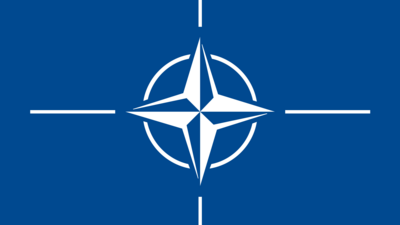-
Our work
-
Fields of work
- Arms control
- Border management
- Combating trafficking in human beings
- Conflict prevention and resolution
- Countering terrorism
- Cyber/ICT Security
- Democratization
- Economic activities
- Education
- Elections
- Environmental activities
- Gender equality
- Good governance
- Human rights
- Media freedom and development
- Migration
- National minority issues
- Policing
- Reform and co-operation in the security sector
- Roma and Sinti
- Rule of law
- Tolerance and non-discrimination
- Youth
- Field operations
- Projects
-
Meetings and conferences
- Summit meetings
- Review Conferences
- Ministerial Council meetings
- Plenary meetings of the Permanent Council
- Plenary Meetings of the Forum for Security Co-operation
- Security Review Conferences
- Annual Implementation Assessment Meetings
- Economic and Environmental Forum
- Economic and Environmental Dimension Implementation Meetings
- Human rights meetings
- Media conferences
- Cyber/ICT security conferences
- Conference of the Alliance against Trafficking in Persons
- Gender equality conferences
- Annual OSCE Mediterranean conferences
- Annual OSCE Asian conferences
- Partnerships
-
Fields of work
-
Countries
- All
-
Participating States
- Albania
- Andorra
- Armenia
- Austria
- Azerbaijan
- Belgium
- Belarus
- Bosnia and Herzegovina
- Bulgaria
- Canada
- Croatia
- Cyprus
- Czechia
- Denmark
- Estonia
- Finland
- France
- Georgia
- Germany
- Greece
- Holy See
- Hungary
- Iceland
- Ireland
- Italy
- Kazakhstan
- Kyrgyzstan
- Latvia
- Liechtenstein
- Lithuania
- Luxembourg
- Malta
- Moldova
- Monaco
- Mongolia
- Montenegro
- The Netherlands
- North Macedonia
- Norway
- Poland
- Portugal
- Romania
- Russian Federation
- San Marino
- Serbia
- Slovakia
- Slovenia
- Spain
- Sweden
- Switzerland – OSCE Chairpersonship 2026
- Tajikistan
- Türkiye
- Turkmenistan
- Ukraine
- United Kingdom
- United States of America
- Uzbekistan
- Asian Partners for Co-operation
- Mediterranean Partners for Co-operation
-
Structures and institutions
- Chairpersonship
-
Secretariat
- Secretary General
- Office of the Secretary General
- Conflict Prevention Centre
- Transnational Threats Department
- Office of the Special Representative and Co-ordinator for Combating Trafficking in Human Beings
- Office of the Co-ordinator of OSCE Economic and Environmental Activities
- Gender Issues Programme
- Opportunities for Youth
- Department of Human Resources
- Department of Management and Finance
- Office of Internal Oversight
- Documentation Centre in Prague
- Institutions
-
Field operations
- Presence in Albania
- Centre in Ashgabat
- Programme Office in Astana
- Programme Office in Bishkek
- Mission to Bosnia and Herzegovina
- Programme Office in Dushanbe
- Mission in Kosovo
- Mission to Moldova
- Mission to Montenegro
- Mission to Serbia
- Mission to Skopje
- Project Co-ordinator in Uzbekistan
- Closed field activities
- Parliamentary Assembly
- Court of Conciliation and Arbitration
- Organizational structure
- About us
Overview
The OSCE and NATO have maintained a strong relationship for decades. Both organizations share an aspiration for a peaceful, stable and democratic Euro-Atlantic region, and there is a great deal of overlap between their constituencies. All 32 NATO Allies are OSCE participating States, and many OSCE participating States that are not part of NATO, as well as several OSCE Partners for Co-operation, belong to some of NATO’s Partnership programmes.
Already in 1990, with NATO’s London Declaration, the member states of the North Atlantic Alliance expressed strong support to the then-CSCE and called for this forum to “become more prominent in Europe’s future, bringing together the countries of Europe and North America”. 1999 NATO’s Strategic Concept recognized the essential role played by the OSCE in promoting peace and stability, particularly after the close co-operation undertaken between both organizations with regard to efforts to bring about peace in South-Eastern Europe.
Expanded relationship
Collaboration of the two organizations expanded after the September 11, 2001 attacks, reflecting a changed focus by the OSCE participating States and the NATO Member States. In 2004, NATO Member States issued the Istanbul Summit Communiqué, stating that “NATO and the OSCE have largely complementary responsibilities and common interests, both functionally and geographically. NATO will continue to further develop co-operation with the OSCE in areas such as conflict prevention, crisis management and post-conflict rehabilitation.”
NATO’s latest Strategic Concept, adopted in Madrid in 2022, calls for joint co-operation with the OSCE, particularly in the field of human security.
In practice, both organizations co-operate and exchange experiences, views and lessons learnt on a variety of issues, such as:
- political dialogue, including discussions on the European Security Architecture and staff-to-staff talks, held yearly;
- combating transnational threats, including terrorism and cyber threats;
- Women, Peace and Security and gender equality;
- small arms and light weapons issues; and
- confidence- and security-building measures.
